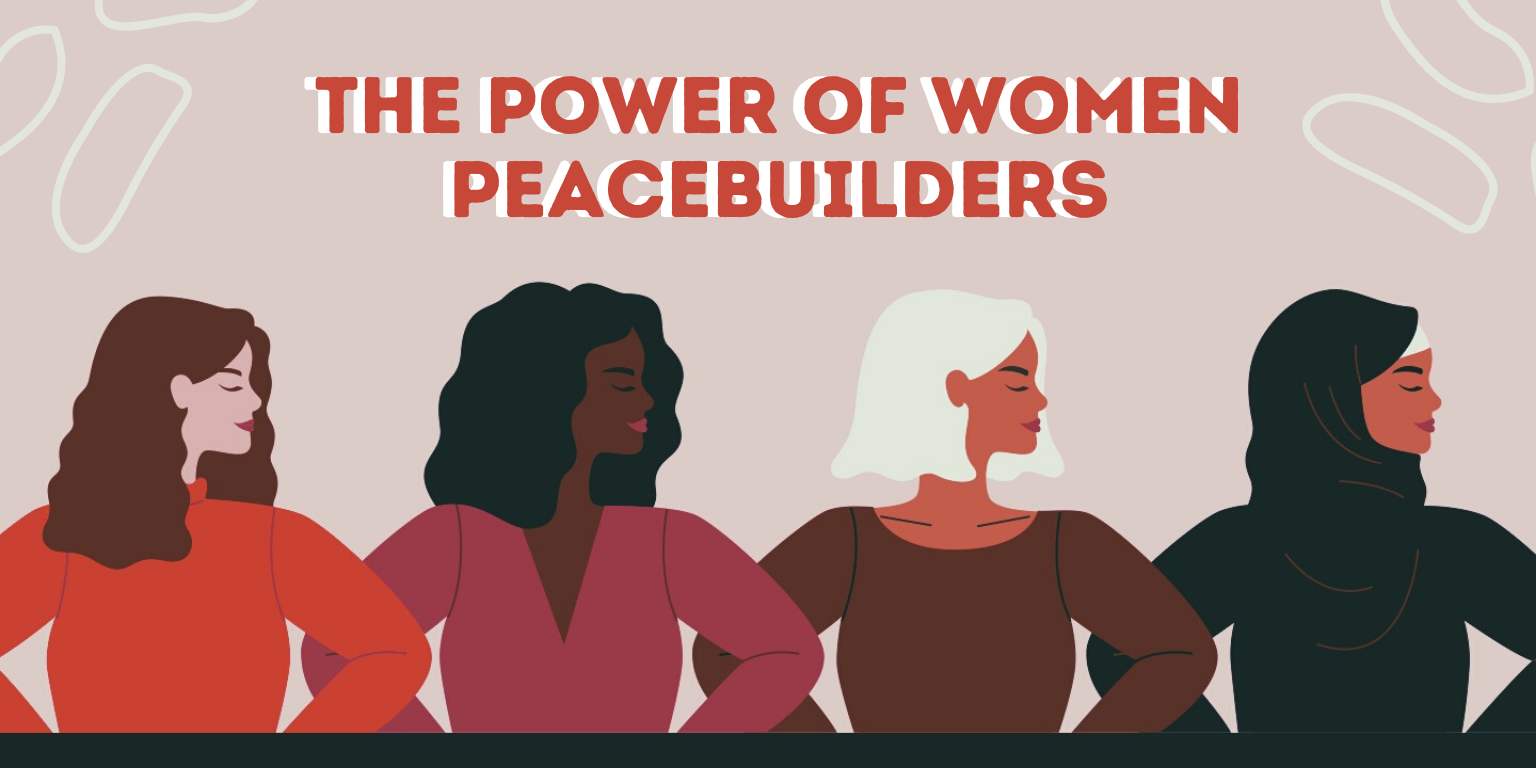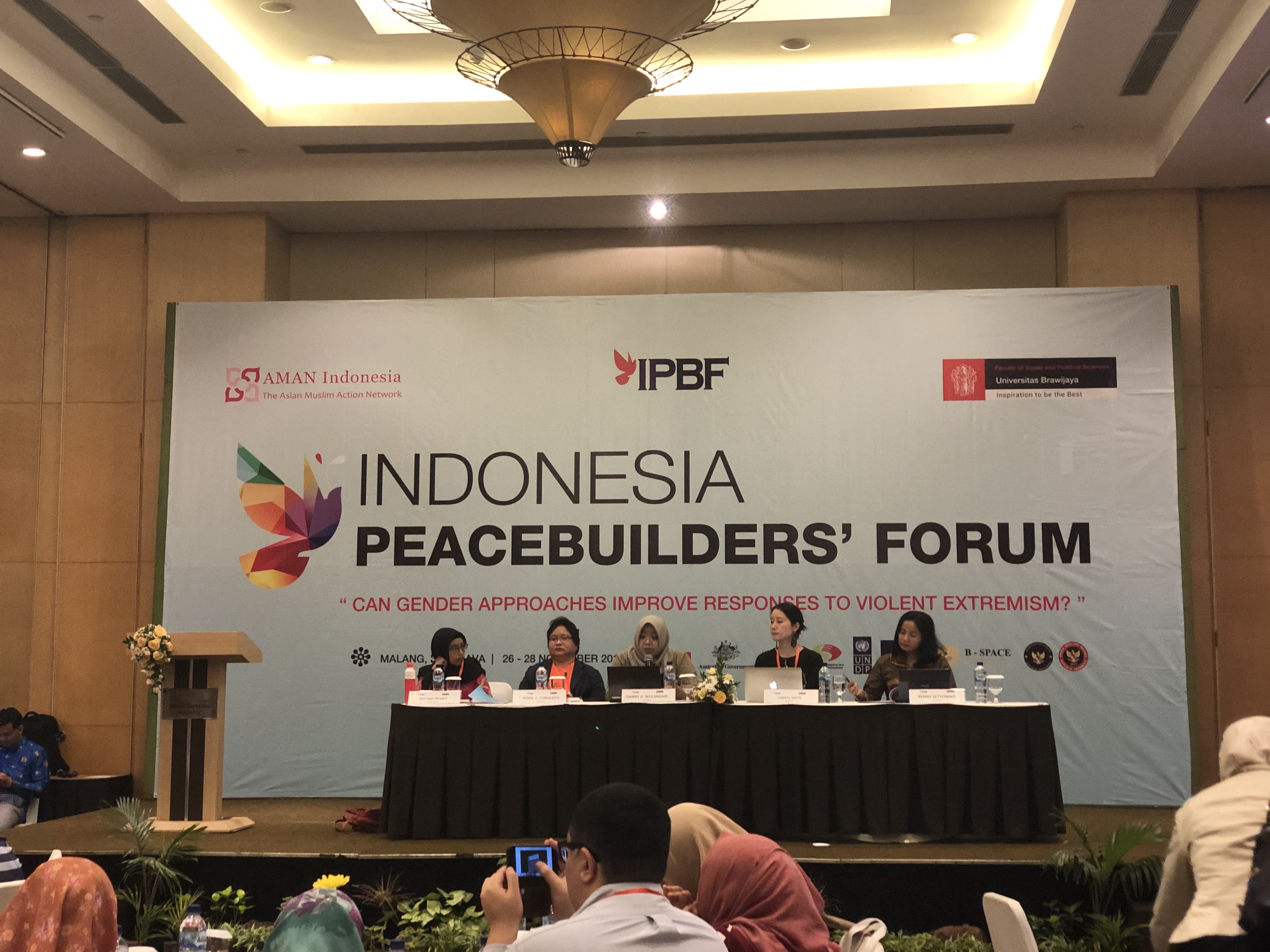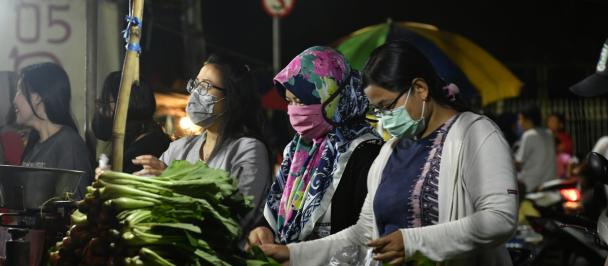When it comes to violent extremism, Indonesia may hold an unflattering statistic on incidences, but thanks to its burgeoning and mature democratic system, the multi-ethnic nation offers a thriving ecosystem to deepen counter-terror studies.
According to the 2019 Global Terrorism Index, Indonesia is ranked as the fourth most affected country in Southeast Asia. The impact of violent terrorism has brought more damages to vulnerable communities such as women. Despite their marginalized position, many scholars argue that women have the empowering role in curbing the spread of the ideology.
With a mission to leave no one behind, UNDP Indonesia has recently co-hosted the Indonesia Peacebuilders Forum 2019 in East Java city of Malang. The Forum highlights stories and experiences of women frontliners in peacebuilding and preventing extremist ideologies in their own areas. With the theme “Can Gender Approaches Improve Response to Violent Extremism?" the forum unpacked various issues and topics on how gender roles function within extremist groups.
Indeed, despite its tremendous potential, women are still often overlooked in programs designed to prevent the spread of extremist ideology. Their roles in the community, as mothers, wives, sisters and daughters help forge the values of the community, a critical role that is often overshadowed by the vast stage of male-dominated violent extremism prevention program.
One critical role that women can play is on religious leadership. Amplifying the voices of women ulama (cleric) is a novel way in preventing the spread of extremism. Women clerics could highlight alternative narratives from women’s perspective in promoting positivity eliminating hatred. This marked women’ active roles in promoting peace to counter-terror activities.
The Forum also calls for more opportunities to foster dialogues among women peace makers. Opportunities to foster dialogue between communities by women and for women increases understanding and creates a safe space to voice their concerns over violent doctrines. Believed to have more empathy, female speakers help build empathy-oriented solutions when tackling the spread of intolerance that leads to violent extremism.
Participation of women in the wider fight against terrorism and violent extremism is essential. UNDP Indonesia through the project of ‘Preventing Violent Extremism through Promoting Tolerance and Respect for Diversity’ or PROTECT has supported the integration of gender-based approaches into policies and programmes in responding to violent extremism as part of the overall remedial approach by the government. Working closely with the National Counter-Terrorism Agency (BNPT), PROTECT aims to bridge the knowledge gap around P/CVE issues to provide positive narratives and outcomes, as well as through evidence-based information for policy development.
Preventing Violent Extremism requires a complex understanding of political, social and economic factors and processes of both radicalization and deradicalization. UNDP believes that an inclusive approach is required and necessary to prevent and mitigate violent extremism. In order to achieve SDG #16, we ensure a variety of voices heard. Starting by giving a highlight to the stage of P/CVE for the women and the work they are doing to achieve peace in their communities.
-
Writing by Eva Pastora
Edited by Tomi Soetjipto, Ranjit Jose, Misthohizzaman and Yenny Widjaja

 Locations
Locations


